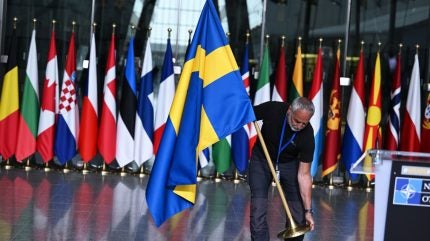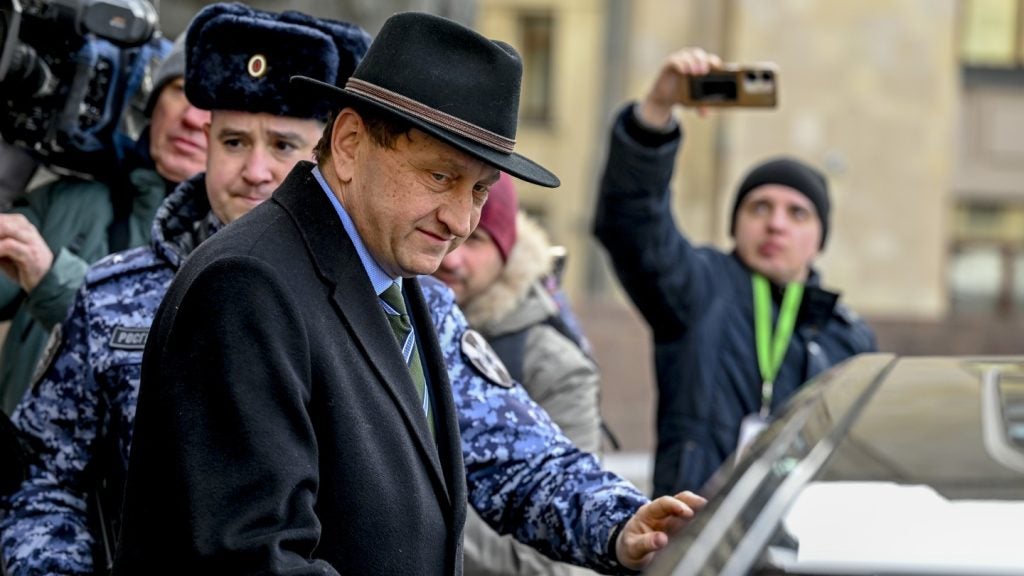
Sweden’s accession to the Nato alliance was far from a smooth process.
While the objections of Turkey and Hungary stole headlines as the main obstacle, there was also massive disruption caused by a deluge of cyberattacks on Sweden as knowledge of the pending Nato membership became public.
How well do you really know your competitors?
Access the most comprehensive Company Profiles on the market, powered by GlobalData. Save hours of research. Gain competitive edge.

Thank you!
Your download email will arrive shortly
Not ready to buy yet? Download a free sample
We are confident about the unique quality of our Company Profiles. However, we want you to make the most beneficial decision for your business, so we offer a free sample that you can download by submitting the below form
By GlobalDataSweden turned into a prime target for distributed denial-of-service (DDoS) attacks after it formally applied to join Nato in May 2022, according to a report published 2 May 2024, by cybersecurity experts NETSCOUT.
“When Sweden’s Foreign Minister hinted at Hungary’s approval of their bid to join Nato on February 14, the onslaught began, with attack volume increasing to 636 on February 15”, the report states. “This signalled a spike in unseen tensions and retaliation from several politically motivated hacker groups. In fact, Russian hackers disrupted government operations in Sweden via ransomware attacks.”
DDoS attacks on Sweden have ramped up considerably from late 2023 into 2024. The peak on 15 February represented a 315% increase compared to the same date in 2023.
Why did Sweden join Nato?
Cyberattacks by pro-Kremlin groups are emblematic of the pressure Sweden felt to shelter under Nato’s Article 5 mutual defence guarantee.
Stockholm’s ambitions to join Nato date back to 1994, when Sweden had just joined the Partnership for Peace, a Nato program for 19 core and fringe members across Europe.
What pushed Sweden and its Nordic neighbour Finland over the edge was, of course, Russia’s invasion of Ukraine in February 2022.
Unlike Finland, Sweden does not share a border with Russia. Many Swedes wanted to maintain the country’s traditional military neutrality, but a growing feeling of endangerment prompted Swedish diplomats’ calls for Nato accession to grow stronger.
Swedish Prime Minister Ulf Kristersson pronounced it a “historic day” when Sweden became a full Nato member on 7 March.
Will Nato membership bolster Sweden’s cybersecurity?
Whether or not joining Nato will strengthen Sweden’s cyber defences remains unclear, according to Richard Hummel, threat intelligence lead at NETSCOUT.
“It is much too early to tell how this move and joining Nato will impact [Sweden’s] cybersecurity space”, Hummel tells Army Technology. “Regardless of what political camp, world power, or partnership one joins, the act of securing networks and assets is a difficult and arduous process that often takes time to implement properly.”
Even though many of the same pro-Kremlin cybergangs are involved – NoName057, Anonymous Sudan, Russian Cyber Army Team, Killnet – the volume of cyberattacks on Sweden go beyond those inflicted on other Nato members.
Poland, for instance, suffered a drastic surge in cyberattacks following the election of pro-EU Prime Minister Donald Tusk in December.
Sweden has also been targeted with an unprecedentedly wide range of attacks, from government agencies to online shopping services.
“Sweden is already quite good at handling DDoS attacks as they’ve been pummelled for years with only minor impacts from time to time,” Hummel adds. “It stands to reason they will continue to remain steadfast in their determination to ensure networks and the internet remain easily and readily accessible throughout the country.”
Why did Turkey and Hungary initially block Sweden from Nato?
Turkey and Hungary, Nato’s most pro-Russia members, both repeatedly opposed Sweden’s accession.
Turkish President Recep Tayyip Erdoğan pointed to the activities of the PKK, a Kurdish militant group in Sweden, as well as restrictions on arms exports to Ankara.
Erdogan eventually dropped his objections last July after months of accession hardball – but not before securing significant economic, military and diplomatic gains.
Hungary continued to drag its feet. While Prime Minister Viktor Orbán never provided any specific justification, most pointed to Hungarian politicians’ continued friendliness with their Russian counterparts.
Orbán eventually U-turned in February, sweetened by a new military deal for Sweden to sell Hungary four more Gripen jets to add to its current stockpile of 14.
The benefits of Sweden’s Nato accession are mutual.
Stockholm receives greater protection. Its military shortcomings were exposed in 2013 when Russian bomber plans were able to simulate an attack on Stockholm and Sweden needed Nato to help repel them.
On the flipside, adding Sweden to its ranks offers Nato the geopolitically strategic island of Gotland, a key hub for deploying troops in a conflict.
Nato also benefits from increased firepower. Stockholm is the world’s 13th-largest arms exporter, with a growing defence industry comprising more than 200 manufacturers.
Attention in Stockholm now turns to the Nato-derived possibility of greater access to the world-leading cybersecurity systems of the US, Netherlands or France.








